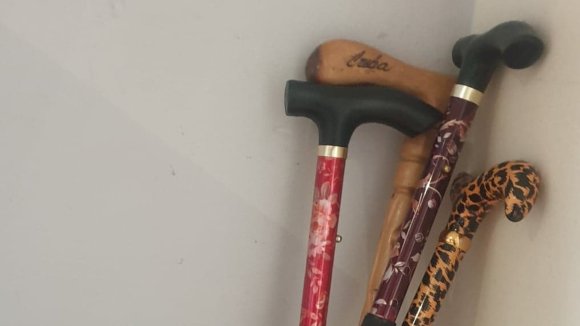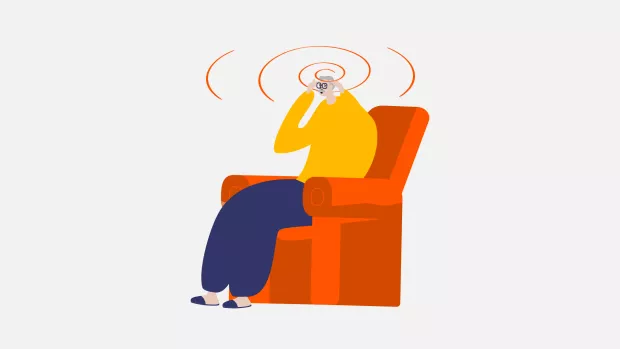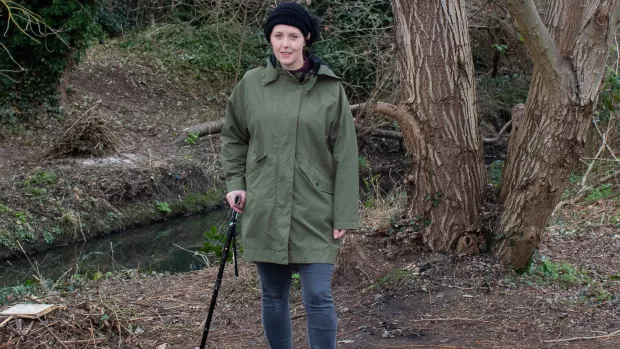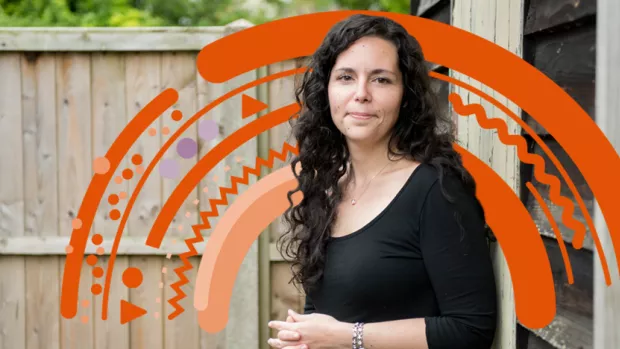
Why I use a walking stick
Recently, my physiotherapist has encouraged me to try and increase my exercise routine. This got me thinking about why I use a walking stick when out and about.
It all started when I was still working. I used to be a nurse, and my final post was a community psychiatric nurse. One winter’s day, I was tasked with escorting someone to an important solicitor’s meeting in the city centre. This person was a really shy, non-English-speaker and used a lot of non-verbal communication to make himself understood.
It was all going well until I parked up in the nearest available space. As soon as I stepped out onto the street, I suffered the familiar sensation of blurred vision, indescribable dizziness and a feeling that I MUST grab onto something to steady myself.
Even when I was a child, I had a sensation that ‘tall buildings might fall on me’. I suppose this is an irrational fear, and some have suggested this is anxiety, but I don’t think it is.
Holding onto walls and lamp posts
We did manage to make the appointment although I must have looked rather strange clutching onto walls, lamp posts and traffic lights. This made me feel terrible in my role. I was meant to be easing another person’s worries by providing physical support, and I must have looked as though I wanted to crawl along on the pavement.
I couldn't explain what was happening because of the language barrier. The man clutched at his chest, appearing even more anxious himself. I knew then that I had to do something – this is when I started using a walking stick.
What triggers these sensations
The feeling I described earlier has worsened over the years. Although I do get blurred vision at home, it is manageable in familiar surroundings.
Triggers to the problem for me are bright lights (such as fluorescent lighting in supermarkets reflecting on shiny floors). Wide-open spaces (such as the big field that dog walkers use near my house).
Or the opposite – city centres with a dense concentration of tall buildings. Looking at the sky, and then back to straight in front of me causes it too. I think that this is something to do with moving clouds, the contrast in lighting and my eyes not catching up.
Walking sticks come in handy
Eye problems were the first thing I noticed, and I have been treated for it several times in the past. An MS nurse once told me that the lasting results of optic neuritis can be spatial awareness. I would say this is true for me because I do sometimes think there is a step there when there isn’t. And again, sticks come in handy in this instance.

The walking stick has helped me immensely over the years. I feel more confident when out and about.
I have noticed that if I try and walk without it, I am very unsure and slow. I look for somewhere to sit or lean when I should be looking ahead of me at my destination. I believe walking with a stick acts as a visual marker in a crowded situation that I might become unbalanced if I don’t have space.
How I use my walking stick
My physiotherapist has given me plenty of useful tips for using a walking stick. I am conscious not to hunch over the stick and to make sure mine are the right height for me. Lots of walking sticks are adjustable and there is an NHS page on how to use them. My physio is always advising me to ‘turn my stomach muscles on’ and so I actively do this when moving.
If anyone asks me ‘why are you using a stick?’ I try and keep my answer short and sweet because strangers don’t need to know my life story. And I accept that the walking stick can only do so much. I use a scooter for longer journeys – planning is everything.
Ultimately, I wanted to write about walking sticks because I did feel self-conscious when I first started using them. Now I embrace it.
I have many sticks in different colours and patterns to match what I’m wearing, and I keep them in the car and just by the front door. I think it is essential to make life easy for yourself, whatever your particular problem is living with MS.




